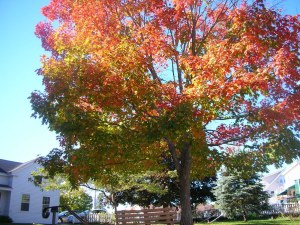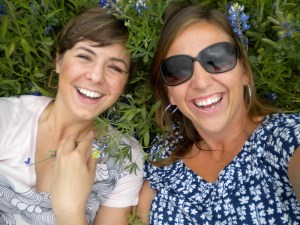I went to a high school in a small town just northwest of Boston, Massachusetts. My teachers were edgy, dedicated and smart. I look back so fondly on them. Many were young, wide-eyed and ready to do their part. Among this clan, was my English teacher, Ms. Baldwin. Every word she said was smart and perfect. She went to Swarthmore for undergrad and was dating a tall and dark Harvard academe. She also wore these purple scarves a lot, and sometimes at the lunch table we’d talk about providing her with some accessorizing support but then again what did we know? We were fourteen year old girls. And besides, she liked her purple scarves, and probably wasn’t afraid to.
Ms. Baldwin lifted words off the page for me. The really wooden English terminology like “plot-line” and “past participles” that we poured over in eighth grade didn’t matter in Ms. Baldwin’s class. Now, the ideas mattered so when we read, everything was on the table. Discussions were rich and made me feel alive. In grammar-land, the ellipsis, or the “dot dot dot” is frowned upon when overused (I’m guilty, it’s so handy!). The ellipses clarifies nothing and points to an insufficiency. For precise people, this is annoying. But, in Ms. Baldwin’s class, we talked about the gaps and possibilities. We weren’t trying to pin as much down as we were trying to acknowledge the ellipses. I gave myself up to it.
Suffice it to say, I still cringe when I remember the way Ms. Baldwin spoke into my sweet little ego one ninth grade afternoon. We got our papers back on Mondays, and she had returned mine, with a “See Me.” See me? I thought. I had worked so long and hard on this paper! And I think, in the midst, of shedding new light on the “Raisin in the Sun” metaphor I may have found the answer to world peace. I knew Ms. Baldwin was tough but so was I. I wanted an A, not a “See Me.”
I walked up to her. “Hi,” I said. Ms. Baldwin went right in: “So, you have this thing with words, Sarah,” she said, setting her coffee cup down. I felt so embarrassed. She kept going. “You have really great ideas, but why don’t you just write what you know…you know? Say what you mean. Be direct.” After a bit of conversation, some humbling instruction and a gracious second chance, I walked away from Ms. Baldwin’s desk dejected because I knew she was right. I had work to do if I wanted to be any good, and for better or for worse, I desperately did.
Still today, I have this obsession with words. I like to make things pretty and cozy with excessive adjectives. I love how Jane Austen uses words like “felicity” and “undulating.” They are beautiful and I just want to use them too. However, I respected Ms. Baldwin and tried to follow her lead. I tried to mean what I wrote even if it wasn’t poetic. In college, I became swept up in the postmodernism of Virginia Woolf and James Joyce. It was all very enlightening and most of the time left me asking totally pointless questions like, “What are the limits of language?” “What is form?” “What’s in a word?” As an English major I wrote these heavy theoretical papers intrigued by the greater meanings of language and culture. I asked a lot of questions and got to read a lot of books. I sat in our large and stone collegiate library and sipped tea. I miss all of it: the tea, the library and the books.
Now, I’m on my way to being a full time therapist and still, I’m a word junkie. But, I’m also learning words are not always the point. What about un-wording? What about silence? What about the fact that some rich and unsearchable things are actually lessened by language. If I were to write another paper, I would write it about un-wording and I would write about how stories of suffering make us silent. It’s a paper that might not have a lot of words, but it would move you to tears.
My work as a therapist is a lot like the small scope of work I’ve done as a reader except infinitely more real. There are gaps to fill in, ideas to flesh out and possibilities to name. But this time around, the gaps and unspoken truths are not in between humorous characters or dialects. The gaps are human ones: raw and fleshy. True and sorry. They leave me perplexed, longing for justification and careful analysis. “Now what did this seven year old do to get treated like that?” I suppose I could look to the research on victimization or generational poverty to give reason to something that has none. And in fact, I do. I do try and add things up. I do try and understand more. But, when I’m in the moment and in my office, watching a small mouth speak words heavier than freight train, I must rely on the grace of silence. There are truly no words.
But it is hard, when the inclination is to speak into things. The richest passages of my books are annotated several times over. I want to make more of them. And so I’m asking: Is it okay to want to make more of someone else’s story? To annotate someone else’s life? And perhaps most importantly: Where is the line?
I don’t know. I also don’t really know what human margins look like other than knowing they are private and precious. Any scribble room I have is nothing short of an honor.
This year, I am learning that I do not need to holler into emptiness just so I get an echo. I do not need to make music or chatter to fill the room even when everything feels too vulnerable to be useful. Usefulness is not the point. The point is loving presence. The point, like it was in Ms. Baldwin’s class is the gap- the fact that it’s full of potential and lacking precision. And I need stamina more than words. Dear God, I need stamina. To bear this kind of mystery. To bear this kind of silence.







